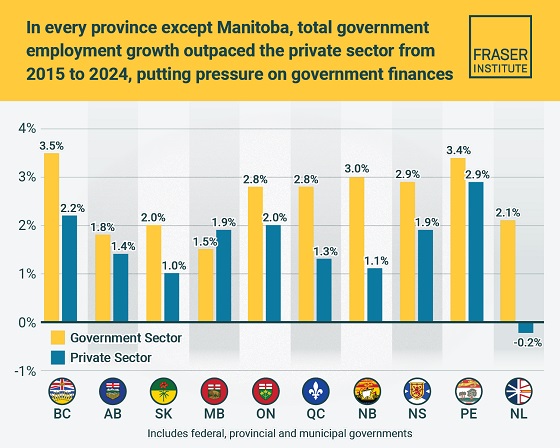Artificial Intelligence
Trump’s New AI Focused ‘Manhattan Project’ Adds Pressure To Grid


From the Daily Caller News Foundation
Will America’s electricity grid make it through the impending winter of 2025-26 without suffering major blackouts? It’s a legitimate question to ask given the dearth of adequate dispatchable baseload that now exists on a majority of the major regional grids according to a new report from the North American Electric Reliability Corporation (NERC).
In its report, NERC expresses particular concern for the Texas grid operated by the Electric Reliability Council of Texas (ERCOT), where a rapid buildout of new, energy hogging AI datacenters and major industrial users is creating a rapid increase in electricity demand. “Strong load growth from new data centers and other large industrial end users is driving higher winter electricity demand forecasts and contributing to continued risk of supply shortfalls,” NERC notes.
Texas, remember, lost 300 souls in February 2021 when Winter Storm Uri put the state in a deep freeze for a week. The freezing temperatures combined with snowy and icy conditions first caused the state’s wind and solar fleets to fail. When ERCOT implemented rolling blackouts, they denied electricity to some of the state’s natural gas transmission infrastructure, causing it to freeze up, which in turn caused a significant percentage of natural gas power plants to fall offline. Because the state had already shut down so much of its once formidable fleet of coal-fired plants and hasn’t opened a new nuclear plant since the mid-1980s, a disastrous major blackout that lingered for days resulted.
Dear Readers:
As a nonprofit, we are dependent on the generosity of our readers.
Please consider making a small donation of any amount here.
Thank you!
This country’s power generation sector can either get serious about building out the needed new thermal capacity or disaster will inevitably result again, because demand isn’t going to stop rising anytime soon. In fact, the already rapid expansion of the AI datacenter industry is certain to accelerate in the wake of President Trump’s approval on Monday of the Genesis Mission, a plan to create another Manhattan Project-style partnership between the government and private industry focused on AI.
It’s an incredibly complex vision, but what the Genesis Mission boils down to is an effort to build an “integrated AI platform” consisting of all federal scientific datasets to which selected AI development projects will be provided access. The concept is to build what amounts to a national brain to help accelerate U.S. AI development and enable America to remain ahead of China in the global AI arm’s race.
So, every dataset that is currently siloed within DOE, NASA, NSF, Census Bureau, NIH, USDA, FDA, etc. will be melded into a single dataset to try to produce a sort of quantum leap in AI development. Put simply, most AI tools currently exist in a phase of their development in which they function as little more than accelerated, advanced search tools – basically, they’re in the fourth grade of their education path on the way to obtaining their doctorate’s degree. This is an effort to invoke a quantum leap among those selected tools, enabling them to figuratively skip eight grades and become college freshmen.
Here’s how the order signed Monday by President Trump puts it: “The Genesis Mission will dramatically accelerate scientific discovery, strengthen national security, secure energy dominance, enhance workforce productivity, and multiply the return on taxpayer investment into research and development, thereby furthering America’s technological dominance and global strategic leadership.”
It’s an ambitious goal that attempts to exploit some of the same central planning techniques China is able to use to its own advantage.
But here’s the thing: Every element envisioned in the Genesis Mission will require more electricity: Much more, in fact. It’s a brave new world that will place a huge amount of added pressure on power generation companies and grid managers like ERCOT. Americans must hope and pray they’re up to the task. Their track records in this century do not inspire confidence.
David Blackmon is an energy writer and consultant based in Texas. He spent 40 years in the oil and gas business, where he specialized in public policy and communications.
Artificial Intelligence
Google denies scanning users’ email and attachments with its AI software

From LifeSiteNews
Google claims that multiple media reports are misleading and that nothing has changed with its service.
Tech giant Google is claiming that reports earlier this week released by multiple major media outlets are false and that it is not using emails and attachments to emails for its new Gemini AI software.
Fox News, Breitbart, and other outlets published stories this week instructing readers on how to “stop Google AI from scanning your Gmail.”
“Google shared a new update on Nov. 5, confirming that Gemini Deep Research can now use context from your Gmail, Drive and Chat,” Fox reported. “This allows the AI to pull information from your messages, attachments and stored files to support your research.”
Breitbart likewise said that “Google has quietly started accessing Gmail users’ private emails and attachments to train its AI models, requiring manual opt-out to avoid participation.”
Breitbart pointed to a press release issued by Malwarebytes that said the company made the changed without users knowing.
After the backlash, Google issued a response.
“These reports are misleading – we have not changed anyone’s settings. Gmail Smart Features have existed for many years, and we do not use your Gmail content for training our Gemini AI model. Lastly, we are always transparent and clear if we make changes to our terms of service and policies,” a company spokesman told ZDNET reporter Lance Whitney.
Malwarebytes has since updated its blog post to now say they “contributed to a perfect storm of misunderstanding” in their initial reporting, adding that their claim “doesn’t appear to be” true.
But the blog has also admitted that Google “does scan email content to power its own ‘smart features,’ such as spam filtering, categorization, and writing suggestions. But this is part of how Gmail normally works and isn’t the same as training Google’s generative AI models.”
Google’s explanation will likely not satisfy users who have long been concerned with Big Tech’s surveillance capabilities and its ongoing relationship with intelligence agencies.
“I think the most alarming thing that we saw was the regular organized stream of communication between the FBI, the Department of Homeland Security, and the largest tech companies in the country,” journalist Matt Taibbi told the U.S. Congress in December 2023 during a hearing focused on how Twitter was working hand in glove with the agency to censor users and feed the government information.
If you use Google and would like to turn off your “smart features,” click here to visit the Malwarebytes blog to be guided through the process with images. Otherwise, you can follow these five steps courtesy of Unilad Tech.
- Open Gmail on Desktop and press the cog icon in the top right to open the settings
- Select the ‘Smart Features’ setting in the ‘General’ section
- Turn off the ‘Turn on smart features in Gmail, Chat, and Meet’
- Find the Google Workplace smart features section and opt to manage the smart feature settings
- Switch off ‘Smart features in Google Workspace’ and ‘Smart features in other Google products’
On November 11, a class action lawsuit was filed against Google in the U.S. District Court for the Northern District of California. The case alleges that Google violated the state’s Invasion of Privacy Act by discreetly activating Gemini AI to scan Gmail, Google Chat, and Google Meet messages in October 2025 without notifying users or seeking their consent.
Artificial Intelligence
Lawsuit Claims Google Secretly Used Gemini AI to Scan Private Gmail and Chat Data

Whether the claims are true or not, privacy in Google’s universe has long been less a right than a nostalgic illusion.
|
When Google flipped a digital switch in October 2025, few users noticed anything unusual.
Gmail loaded as usual, Chat messages zipped across screens, and Meet calls continued without interruption.
Yet, according to a new class action lawsuit, something significant had changed beneath the surface.
We obtained a copy of the lawsuit for you here.
Plaintiffs claim that Google silently activated its artificial intelligence system, Gemini, across its communication platforms, turning private conversations into raw material for machine analysis.
The lawsuit, filed by Thomas Thele and Melo Porter, describes a scenario that reads like a breach of trust.
It accuses Google of enabling Gemini to “access and exploit the entire recorded history of its users’ private communications, including literally every email and attachment sent and received.”
The filing argues that the company’s conduct “violates its users’ reasonable expectations of privacy.”
Until early October, Gemini’s data processing was supposedly available only to those who opted in.
Then, the plaintiffs claim, Google “turned it on for everyone by default,” allowing the system to mine the contents of emails, attachments, and conversations across Gmail, Chat, and Meet.
The complaint points to a particular line in Google’s settings, “When you turn this setting on, you agree,” as misleading, since the feature “had already been switched on.”
This, according to the filing, represents a deliberate misdirection designed to create the illusion of consent where none existed.
There is a certain irony woven through the outrage. For all the noise about privacy, most users long ago accepted the quiet trade that powers Google’s empire.
They search, share, and store their digital lives inside Google’s ecosystem, knowing the company thrives on data.
The lawsuit may sound shocking, but for many, it simply exposes what has been implicit all along: if you live in Google’s world, privacy has already been priced into the convenience.
Thele warns that Gemini’s access could expose “financial information and records, employment information and records, religious affiliations and activities, political affiliations and activities, medical care and records, the identities of his family, friends, and other contacts, social habits and activities, eating habits, shopping habits, exercise habits, [and] the extent to which he is involved in the activities of his children.”
In other words, the system’s reach, if the allegations prove true, could extend into nearly every aspect of a user’s personal life.
The plaintiffs argue that Gemini’s analytical capabilities allow Google to “cross-reference and conduct unlimited analysis toward unmerited, improper, and monetizable insights” about users’ private relationships and behaviors.
The complaint brands the company’s actions as “deceptive and unethical,” claiming Google “surreptitiously turned on this AI tracking ‘feature’ without informing or obtaining the consent of Plaintiffs and Class Members.” Such conduct, it says, is “highly offensive” and “defies social norms.”
The case invokes a formidable set of statutes, including the California Invasion of Privacy Act, the California Computer Data Access and Fraud Act, the Stored Communications Act, and California’s constitutional right to privacy.
Google is yet to comment on the filing.
|
|
|
|
Reclaim The Net is reader-supported. Consider becoming a paid subscriber.
|
|
|
|
-

 Artificial Intelligence1 day ago
Artificial Intelligence1 day agoGoogle denies scanning users’ email and attachments with its AI software
-

 Alberta1 day ago
Alberta1 day agoPremier Danielle Smith says attacks on Alberta’s pro-family laws ‘show we’ve succeeded in a lot of ways’
-

 Business2 days ago
Business2 days agoIs affirming existing, approved projects truly the best we can do in Canada?
-

 MAiD1 day ago
MAiD1 day agoHealth Canada suggests MAiD expansion by pre-approving ‘advance requests’
-

 Alberta1 day ago
Alberta1 day agoNew pipeline from Alberta would benefit all Canadians—despite claims from B.C. premier
-

 Business16 hours ago
Business16 hours agoBlacked-Out Democracy: The Stellantis Deal Ottawa Won’t Show Its Own MPs
-

 Health1 day ago
Health1 day agoOrgan donation industry’s redefinitions of death threaten living people
-

 Business2 days ago
Business2 days agoTaxpayers paying wages and benefits for 30% of all jobs created over the last 10 years






